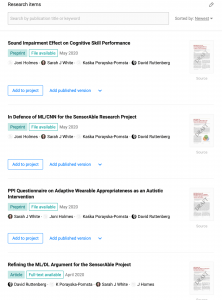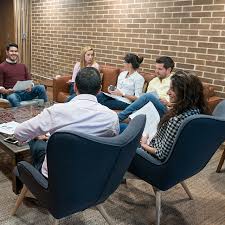It certainly seems a bit hollow using the title above given all that many of us face in our world today. Whether you’re affected by the pandemic, political, racial re-awakening, climate issue, etc., I can only hope that we are all nearing the end of troubling tunnels and heading into lighter and more positive times.
As with our lives, one chapter closes and another begins. So it is with the SensorAble project.
As 2020 came to a close, my research is nearing completion of phase one (the Public Participant Information study–PPI) and the second phase (Sensory-Attention-Anxiety experiments–SAS-II) commences.

I am hoping to begin publishing some emerging outputs and statistical results from the PPI in the coming year. I will be identifying the lived-experience data obtained from my study participants (N=196) along with the statistical analyses and implications this has in relation to a development of a solution to address multimodal distractibility, anxiety and attentional focus.
Further, one of the labs I participate in (UCL’s Development Diversity Lab–DDL) will be extending my PPI beyond neurodiverse individuals to include neurotypical (NT) participants. Stay tuned to this space if you’d like to be considered for this upcoming study.
SAS-II is already well underway having moved into coding and pre-test mode. I intend on further testing throughout the next 90 days and launching a recruitment strategy for both autistic and NT individuals. Likewise…keep your eyes on this space if you’re inclined to help design and test the future of sensory technologies.

I’d like to extend a huge thank you to everyone who has helped out thusfar with my research including my esteemed supervisors Professor Kaśka Porayska-Pomsta, Drs Sarah White and Joni Holmes. There’s not a better trio of rock-stars on the planet, and I am honored to retain your guidance and friendshop. My two research assistants (Anushay Mazhar and Oonagh Coleman) have been incredibly kind and are beyond brilliant! Of course, my lab colleagues at UCL’s Knowledge Lab (KL), the aforementioned DDL and University of Cambridge’s Cognition, Education and Emotion Lab (CEE) which is part of the MRC Cognition and Brain Sciences Unit. I wish all 0f you, along with my dearest family and friends, a bright new year filled with health, happiness and prosperity.
Peace and love,

-David









